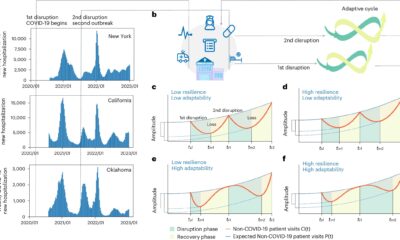Business
Goldman Sachs lifts bonus cap on UK staff, allowing profits of up to 25 times annual salary

Goldman Sachs has announced the abolition of a bonus cap for hundreds of its top British bankers, potentially allowing top performers to earn bonuses of up to 25 times their annual salary.
Richard Gnodde, CEO of Goldman Sachs International, announced the change in a video message to staff, saying it aligns with the company’s global approach to compensation. The move follows UK regulators’ decision to formally abolish EU rules that previously limited bonuses to twice basic salary, with other major UK lenders including HSBC, Barclays and NatWest set to follow suit.
Gnodde emphasized that ending the UK cap would promote consistency across Goldman’s international workforce and provide more flexibility in compensation practices. The adjustment allows for a greater share of discretionary remuneration depending on performance and facilitates the deferral and possible clawback of bonuses.
The revised policy will affect hundreds of Goldman’s 6,000 UK employees, known as ‘material risk takers’, allowing them to earn bonuses of up to 25 times their salary.
Gnodde highlighted that the changes bring the remuneration of UK risk takers who take material risks more in line with the firm’s global principles, favoring lower fixed remuneration but a higher share of discretionary remuneration, in line with the prudential objectives of regulators.
However, this change will not extend to Goldman’s EU-based bankers as US regulators are not placing any restrictions on maximum payouts.
The bonus cap, originally introduced after the 2007-2008 financial crisis, was intended to curb a bonus culture associated with the pursuit of short-term profits at the expense of long-term stability. Although opposed by some British politicians and the Bank of England, it faced challenges in potentially deterring skilled bankers and encouraging their migration to other financial centers.
The decision to abolish the limit gained momentum after Brexit, when former Chancellor Kwasi Kwarteng announced plans in September 2022. Regulators formalized the change in November last year, marking a significant shift in UK financial compensation practices.
Goldman Sachs said this approach increases flexibility in managing fixed costs and strengthens Britain’s appeal as a competitive destination for talent, bringing the country closer to remuneration practices in other global financial centres.











